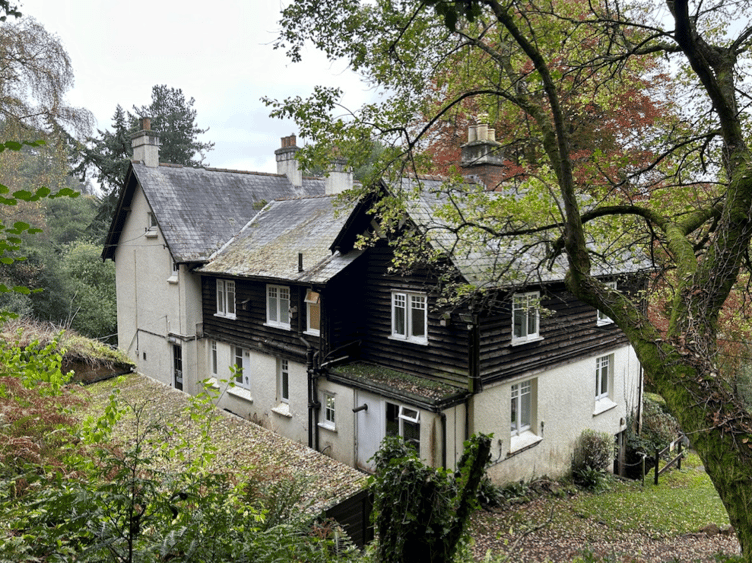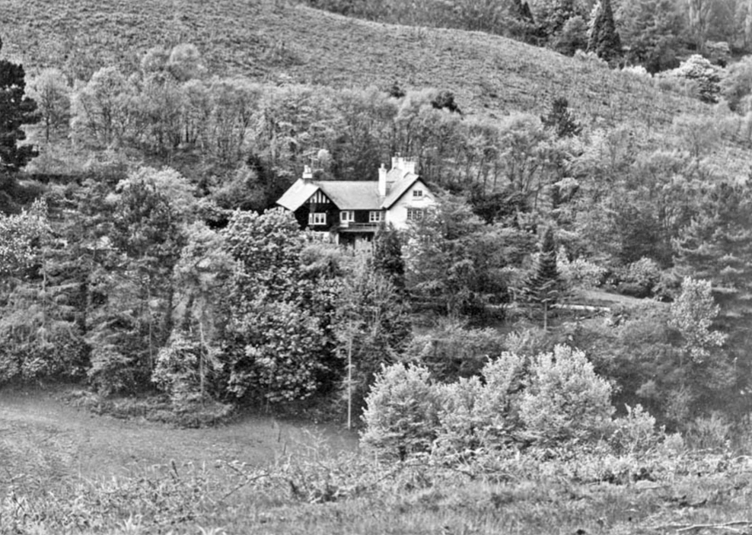A YOUTH hostel could be converted to its original purpose as a house under plans submitted to Exmoor National Park Authority (ENPA).
The hostel in Manor Road, Alcombe, Minehead, is currently run as a Youth Hostels Association (YHA) franchise and set in 2.7 acres of Exmoor National Park.
It is one of more than 100 hostels in the YHA network across England and Wales and has eight bedrooms providing sleeping accommodation for 32 people.
Property agents Sidney Phillips has been marketing the brick built hostel for sale at £600,000, describing it as a former hunting lodge with ‘considerable character’ benefiting from ‘complete tranquillity’ other than the occasional far off whistle of a West Somerset Railway steam train.
A Sidney Phillips spokesperson said: “The hostel accommodates large numbers of tourists visiting the area participating in outdoor pursuits including coastal walking, cycling, and those visiting the national park.

“The area is also well-known for the beautiful nearby village of Dunster with its fairytale castle.”
The company said the preference was for the property to continue to be used as a YHA franchise, or as an independent hosteling business, but there was also an option for a change of use to a residential dwelling subject to being granted planning permission.
Now, Harry Singer, of Roadwater-based Singer Instruments, has asked ENPA for planning consent for the hostel’s conversion to a 3,660 sq ft single house.
Planning agent Cerys Dehaini, of Squirrels Architecture, said it was originally built and intended to be used as a private residence in about 1920.
Ms Dehaini said: “The proposed change of use will enable Hagley to function as a principal residence, fulfilling housing needs while preserving the heritage and character of the building and surrounding area.
“The proposal also aligns with sustainable development principles by repurposing an existing building rather than requiring new construction.”

Ms Dehaini said the property was converted to a youth hostel in 1958 and had retained its structural form, with no significant alterations or extensions to its original design, maintaining the character and appearance of a single dwelling.
She said the building’s planning history supported its conversion back to a residential dwelling, with the 1958 change of use explicitly identifying its previous status as a private residence.
Later changes made to the property had only been minor, such as adding a cycle store and a septic tank.
It could now be re-converted to a private residence without the need for any significant work.
Ms Dehaini said confidential marketing evidence and financial assessments were provided by Mr Singer with the planning application which demonstrated that continued operation as a hostel was no longer viable.
She said the proposed change of use of Hagley from a hostel to a private residence was ‘fully consistent’ with ENPA’s Local Plan policies, reusing an existing structure and reducing its environmental impact.
Ms Dehaini said: “It will restore the property’s original purpose, enhance its sustainability, and contribute to local housing needs without compromising the character or integrity of the building or surrounding area.”

.jpeg?width=209&height=140&crop=209:145,smart&quality=75)

.jpeg?width=209&height=140&crop=209:145,smart&quality=75)
.jpeg?width=209&height=140&crop=209:145,smart&quality=75)
Comments
This article has no comments yet. Be the first to leave a comment.